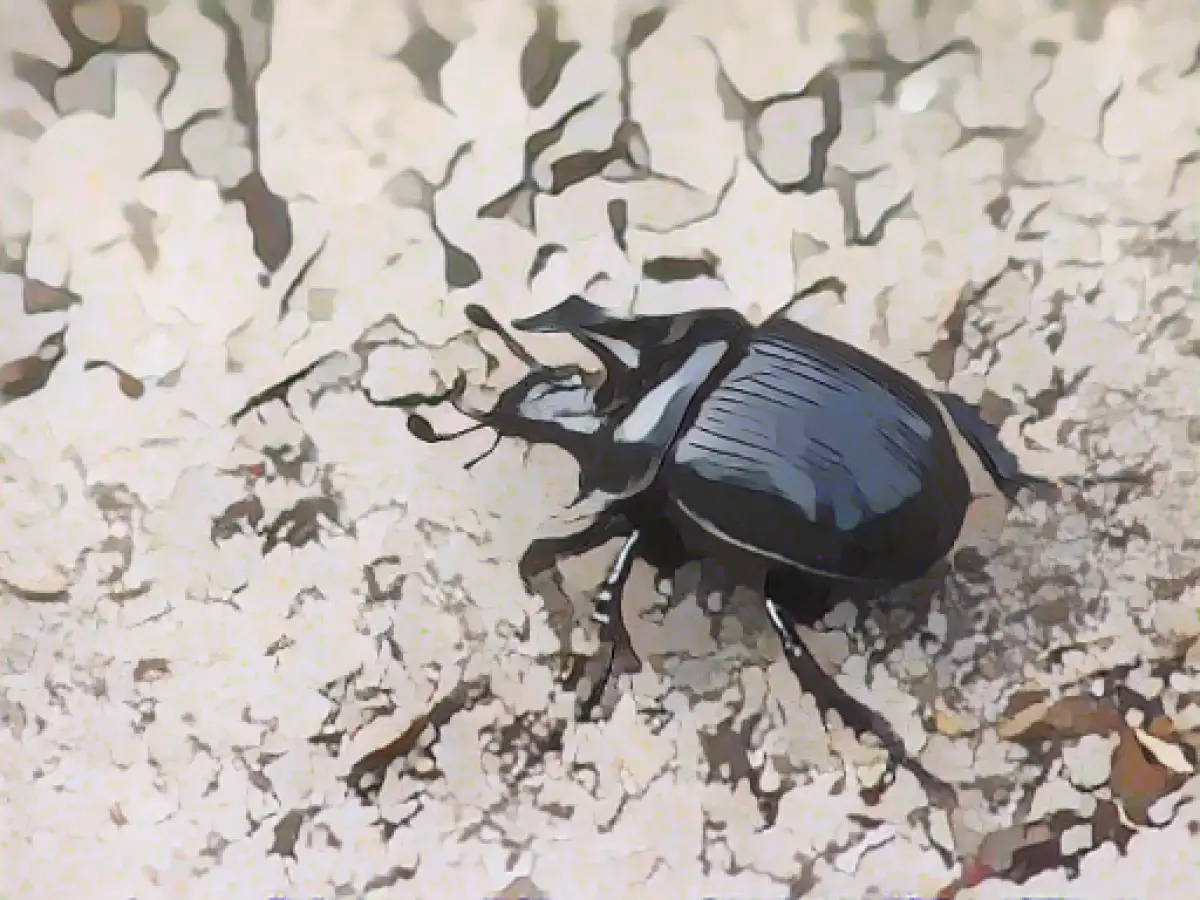Feces-eating bull weevil becomes insect of the year 2024
A dung-eating beetle has been named Insect of the Year 2024. Experts at the Senckenberg German Entomological Institute in Müncheberg, Brandenburg, chose the bull beetle from a number of suggestions, the institute announced. The animal, which belongs to the dung beetle family, plays a key role in ecosystems, but populations are in serious decline, according to the institute.
The bull weevil (Typhaeus typhoeus) is between 14 and 20 millimetres in size. The name comes from its three horns, the outer two of which point forward like those of a bull. They are used in fights with rivals and to protect nesting sites. The beetle is a powerhouse, explained Thomas Schmitt, Director of the Senckenberg Institute and Chairman of the Board of Trustees. It can pull more than a thousand times its body weight.
"The beetles use this strength to push droppings from rabbits, deer, cattle, sheep or horses in the form of a ball into the narrow passages of their breeding chambers as food for their offspring," said Schmitt. To do this, bull beetles dig a shaft up to 1.50 meters deep into the ground after mating. In the chambers, the excrement is formed into a pill, next to which the female lays the egg. The bull weevil larva hatches from the egg, crawls to this pill and feeds there.
Sharp decline in populations worldwide
Dung beetles ensure that excrement quickly disappears from the soil surface, explains Werner Schulze, who was involved in the selection for Nabu. "The beetles also regulate the development of parasitic worms and flies in mammal droppings, promote the transport of plant seeds and reduce the emission of greenhouse gases, especially from cow dung."
Since the mid-1980s, entomologists have recorded a sharp decline in populations worldwide. The reason: grazing animals are increasingly being given preventative anti-worm medication. The active ingredients are excreted by the animals and enter the beetles, which feed on them, via their excrement. "As a result, coprophagous (red: dung-eating) beetles die off or only reproduce to a limited extent," says Schulze.
The decline in dung beetles and dung beetles is classified by scientists as a significant part of the dramatic global loss of insect fauna. In order to counteract this, the use of antiparasitics in pets and livestock must be reduced, according to Chairman of the Board of Trustees Schmitt. Farm animals should also be kept more on pasture than in stables if possible.
- The bull beetle, despite being named Insect of the Year 2024, is facing serious population declines due to the widespread use of anti-worm medication in grazing animals.
- The dung beetle family, which includes the bull beetle, is essential for maintaining a healthy environment by breaking down animal waste, regulating parasites, and promoting plant seed transportation.
- To combat the decline of dung beetles and their relatives, experts suggest reducing the use of antiparasitics in pets and livestock and promoting pasture-based farming over stall-feeding.
Source: www.dpa.com








